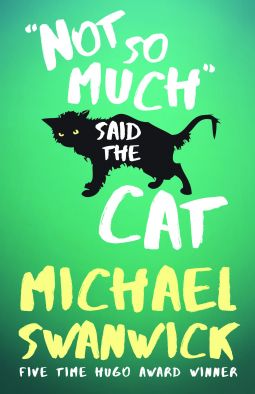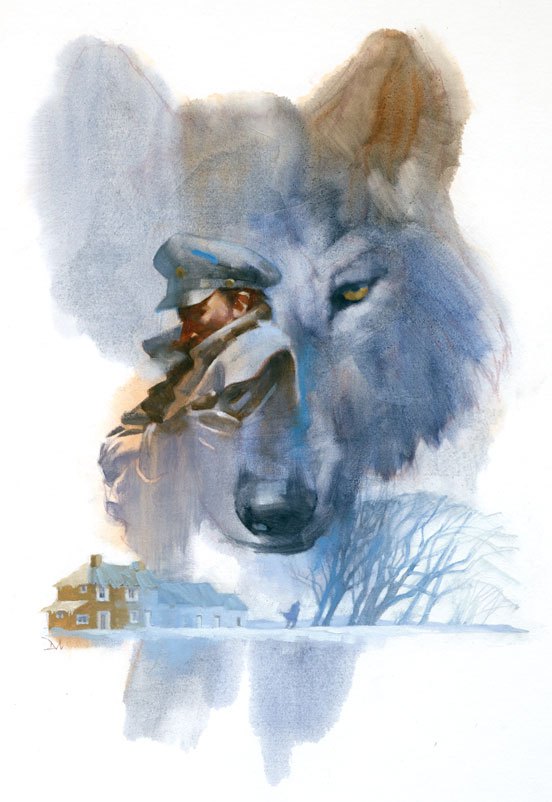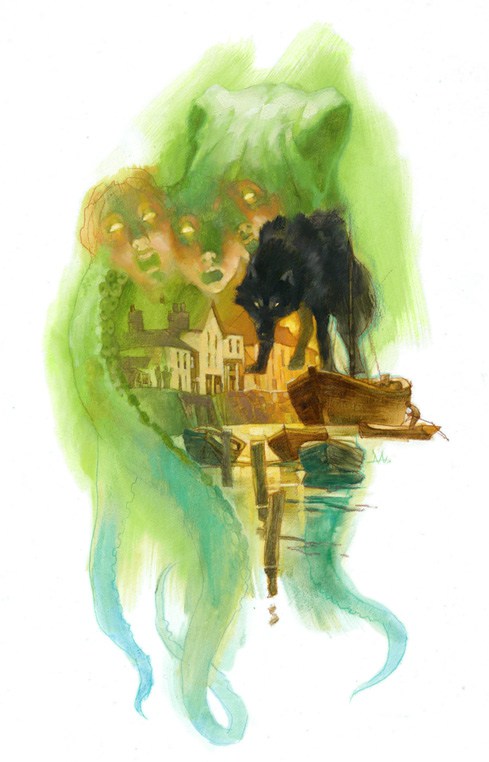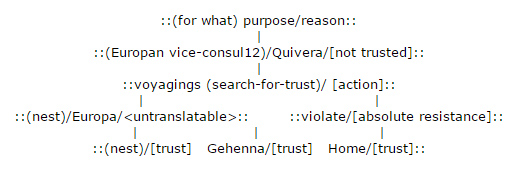I have been making a concerted effort to read more short fiction. I’ve always struggled to read collections of short fiction in one chunk, finding that publishing on a weekly or monthly basis on-line the best way for me to consume them. When sitting down to read – which, for me, means lunch times, travel via public transport, before bed, and any other stolen moment I can find – is far more rewarding when I can invest longer term in a plot or characters that span (at least) a novel. But if you want to write in a medium (and I do enjoy writing short stories), you need to read it (or so they tell me). So here I am, making more of an effort…
 Having never come across Michael Swanwick before, picking up Not So Much, Said The Cat was a bit of a stab in the dark. But he is well-respected in the industry, with multiple awards, so I thought he would be a safe bet. The collection covers many of Swanwick’s stories published elsewhere over the last few years (from 2008 to 2014, across multiple publications including Tor.com, Fantasy and Science Fiction, Clarkesworld, and Asimov’s Science Fiction), compiling them into one anthology. While there are some great ideas and solid storytelling at times, there’s also plenty of stories I struggled with. And struggling to get through a short story is not a good sign.
Having never come across Michael Swanwick before, picking up Not So Much, Said The Cat was a bit of a stab in the dark. But he is well-respected in the industry, with multiple awards, so I thought he would be a safe bet. The collection covers many of Swanwick’s stories published elsewhere over the last few years (from 2008 to 2014, across multiple publications including Tor.com, Fantasy and Science Fiction, Clarkesworld, and Asimov’s Science Fiction), compiling them into one anthology. While there are some great ideas and solid storytelling at times, there’s also plenty of stories I struggled with. And struggling to get through a short story is not a good sign.
‘It was all as dispassionate as an abattoir for robots.’
This could, of course, just be me. After all, one of the short stories in the collection I really couldn’t get on board with was 2008’s Hugo Award nominated From Babel’s Fall’n Glory We Fled. His better stories were focused and simple, for the most part, while those I struggled most with went for ‘cool ideas’ that were either overly complex, overly explained, or simply going for the cool factor above all other story elements. That’s not to say I don’t like cool ideas in SF – I love them (I mean, if I didn’t, why would I love this genre?). There is certainly something to be said of exploring strange ideas in short fiction, but not at the expense of plot, setting, and character.
His better stories were focused and simple, for the most part, while those I struggled most with went for ‘cool ideas’ that were either overly complex, overly explained, or simply going for the cool factor above all other story elements. That’s not to say I don’t like cool ideas in SF – I love them (I mean, if I didn’t, why would I love this genre?). There is certainly something to be said of exploring strange ideas in short fiction, but not at the expense of plot, setting, and character.
 And while I did tend to love his simpler, tightly focused stories in the collection, sometimes he erred on the side of heavy exposition even when completely unnecessary (for example, the story to follow on from Babel, For I Have Lain Me Down on the Stone of Loneliness and I’ll Not Be Back Again – the seemingly endless expository background of the Irish rebellion and Independence, with little to illuminate on the subject and therefore felt like a history textbook, was both unnecessary and dull).
And while I did tend to love his simpler, tightly focused stories in the collection, sometimes he erred on the side of heavy exposition even when completely unnecessary (for example, the story to follow on from Babel, For I Have Lain Me Down on the Stone of Loneliness and I’ll Not Be Back Again – the seemingly endless expository background of the Irish rebellion and Independence, with little to illuminate on the subject and therefore felt like a history textbook, was both unnecessary and dull).
‘You are a virgin. Don’t think that makes you special here. There are plenty of virgins in hell.’
The biggest disappointment of this collection is that it starts so well. The Man in Grey is inventive and philosophical, Passage of Earth kept me thinking for days afterwards, 3 A.M. in the Mesozoic Bar asks us what we’d do if we knew the world were about to end, and Of Finest Scarlet Was Her Gown takes us on a trip to hell, with fascinating life lessons.
Each of these stories did exactly what I love a good SFF short story to do: tell a great story while making the reader think. There are plenty of interesting ideas in these, but the SFF elements of them never feel belaboured (unlike a story like Babel that was all labour and no love). The fantastical exists to create an interesting situation where the characters must ask themselves the big questions around ethics, self-determination, and the point of existence.
‘No one knows the size of the universe or what wonders and terrors it contains. Yet we drive on, blindly burrowing forward through the darkness, learning what we can and suffering what we must. Hoping for stars.’
 Perhaps what I need to learn to appreciate when it comes to short story collections is the breadth of storytelling. Swanwick clearly is a writer who isn’t afraid to take risks, change out his style, and explore the bizarre. And I give him credit for that. You certainly can’t argue that the collection is overly homogenous, which I can see potentially being a problem in single-author short story collections. As far as helping me understand and appreciate short stories more, I think the volume did actually come through. I found stories I loved and others I couldn’t finish, and in doing so, I was able to put my finger on styles that work for me.
Perhaps what I need to learn to appreciate when it comes to short story collections is the breadth of storytelling. Swanwick clearly is a writer who isn’t afraid to take risks, change out his style, and explore the bizarre. And I give him credit for that. You certainly can’t argue that the collection is overly homogenous, which I can see potentially being a problem in single-author short story collections. As far as helping me understand and appreciate short stories more, I think the volume did actually come through. I found stories I loved and others I couldn’t finish, and in doing so, I was able to put my finger on styles that work for me.
As far as hoping the book would help me understand and appreciate short stories more, I think the volume did actually succeed. I found stories I loved and others I couldn’t finish, but in doing so, I was able to put my finger on styles that work for me.
Verdict: A mixed bag of short stories in the SFF genre – the pick ‘n’ mix of literature. I loved some, had no particular feelings either way about others, and even thoroughly loathed a few.
Not So Much, Said the Cat will be released in the UK by Tachyon Publications on August 9th.
 Pop Verse Pop Culture Universe
Pop Verse Pop Culture Universe








Good review! Although you repeated your last sentences twice..